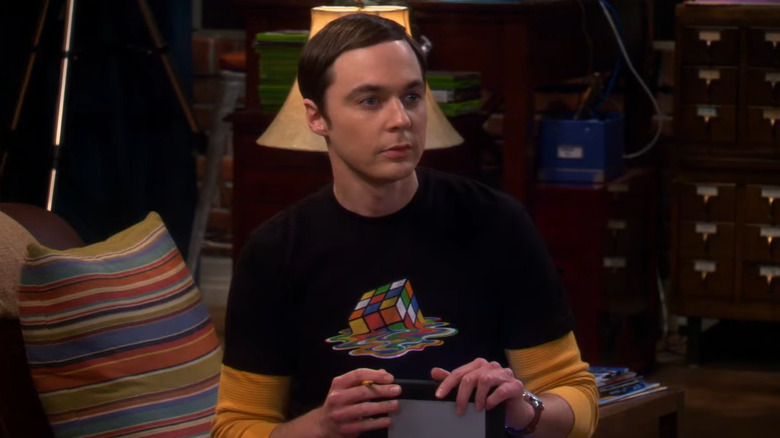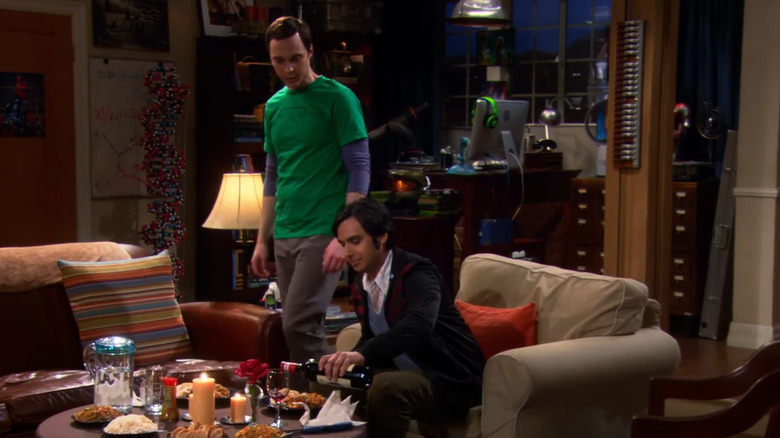The Big Bang Theory's Science Consultant Once Got A Joke On The Air
"The Big Bang Theory" features Caltech scientists Leonard (Johnny Galecki), Sheldon (Jim Parsons), Howard (Simon Helberg), and Raj (Kunal Nayyar) as main characters. It's only natural then if the nerdy roommates and friends speak to each other using plenty of references to all matters of science, from quantum physics to neuroscience.
David Saltzberg worked as the science consultant for the hit comedy from 2007 to 2019 for over 290 episodes. A professor at UCLA, Saltzberg regularly checked to ensure the math featured was correct, and he helped the CBS sitcom's writers stick to scientific fact. He also covered the show's whiteboards with new, accurate mathematical formulas every episode. The professor once joked to NPR, "The whiteboards have dozens of fans."
Saltzberg didn't actually work on the dialogue and gags. Instead, he looked at scripts while placing real science or jargon where the writers had left "Insert Science Here." Still, the UCLA scientist was inspired to write one joke which made it onto the hit series.
Saltzberg did come up with a joke in Season 1
David Saltzberg stepped outside of his usual post as a consultant on "The Big Bang Theory" only twice. Once, when he made a cameo as an extra in the Caltech cafeteria as Howard announces he has a girlfriend. The other time was when he was able to pitch a joke and the writers actually kept it in.
In a Season 1 episode, Sheldon is perpetually feuding with a fellow scientist. Inspired by real scientific history, Saltzberg had an idea for Sheldon's response when someone calls the fight "a little misunderstanding." Sheldon angrily replies, "A little misunderstanding? Galileo and the pope had a little misunderstanding!"
The joke actually stayed in the script and in the finished product. Saltzberg, for his part, appears grateful the writers considered his one-liner at all. "The writers were very kind, but it's a little bit like if I'm at a party and having drinks and someone says, well, they have a new theory of gravity they want to tell me about," he told NPR in 2013. The professor's expertise may be in science, but he clearly has comedic timing.

